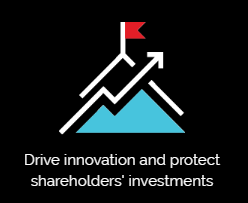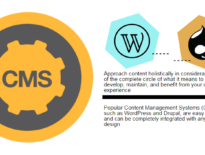
Yeah that’s a bottle of wine. And I know what you’re thinking… “What they heck does a bottle of wine have to do with content and web development?!” Well, a good CMS is like a fine bottle of wine; with just enough of it, you’ll forget your problems.
With the startup community, and in incubators, a simple but paramount evening in our work to introduce founders to what it takes, is the introduction to how easy (and inexpensive) it is to get a website live. Some time ago, through MediaTech Ventures, I explored how content creation is not only an important piece of your puzzle but that HOW you create and host content says a lot about your expertise as a founder and entrepreneur.
“Start by hosting your own content. The secret is largely that simple. How you do so is up to you but your own domain should be publishing your content. That’s the key that eludes most entrepreneurs who believe that 3rd party sites with existing audiences and turnkey solutions are more valuable. Start with a Content Management System (CMS), whether that’s GoDaddy and your own Drupal instance or Austin favorite WPEngine providing for you WordPress, make sure your site is intertwined with the content you create such that it’s yours and yours alone.”
How Content Creation Affects Your Funding
Services like Wix, Squarespace, and Medium make it easy to setup and run a website while developers and engineers will VERY often argue you need to design and build a site from scratch, the fact is that as a founder, getting live and iterating quickly is vastly more important than anything else, and no designer, engineer, nor web developer should stifle you otherwise.
And yet, they do. Constantly. Argue against that simple start, that is.
Nothing should slow your production of content and landing pages.
While paramount, web developers will frequently and overwhelmingly present the mistakes in using a CMS (Content Management System) like WordPress. Because of that, I thought we’d turn to some others’ perspectives as to WHY WordPress is your best decision as you build your presence online.
To do that, I turned to reddit and thought I’d share some of the perspective offered…
Myself head of a large IT department and I was for long against all open source CMS specially WordPress because I had the impression it is easily hackable.
The reality with developers creating custom websites using common frameworks without backend cms is actually indeed a nightmare on its own.
When we hired penetration-testers (as part of our yearly routine) to test the non WordPress / non CMS / custom php website was as vulnerable to cross-site-scripting and SQL injection like any other. Not to mention that I am stuck with the Design Company / Dev who created the website.
The pen testers actually did recommend WordPress because it has regular updates and if hardened and best practices involved it’s safer in the long run.
And I can open the window and say WordPress Dev needed, I will have a dozen lined up.
Since then WordPress is the go to platform. We even build web applications around WordPress.
reddit user nbass668
“We even build web applications around WordPress.”
Appreciate please, as you explore this question, WordPress, while a Content Management System, is also just open source PHP code. It’s code, just like any code your technical co-founder or a developer you hire might put in place. Its role as a CMS is to transition that raw code into a system that you can easily manage, design, and with which you can produce without needing engineers.
Is it perfect?? No, of course not, and yet, neither is a developer spending tens of thousands of your dollars to code from scratch a website that will have bugs, need updates, and likely won’t have all the features that comes with a developed and maintained framework for managing a site, a CMS.
You only need to maintain the site with a decent update process (i.e. testing on staging, checking the new update hasn’t broken things for other people) or outsource if you have to, and you have a really solid and simple platform.
The second step is not to install plugins that aren’t popular and regularly updated. Again, WPEngine will also block plugins and themes which are compromised and will email you.
Biggest benefit: Couple of hours training and you can have key personnel blogging, updating the site, making changes, etc.
As a dev, I.T. manager and marketer, there’s no reason not to go with WordPress for the bulk of websites, and it also works really well as a front-end for more complex apps.
Other platforms, and custom-built, have their place but I would say any engineer is protecting their territory not the business if they write-off WordPress.
reddit’s StevenAU
That’s some more advanced advice and perspective but the bottom line can be teased out such that it’s applicable no matter your experience: Other platforms, and custom-built, have their place but I would say any engineer is protecting their territory not the business if they write-off WordPress.
I loved this point, if only because of the “company” employing WordPress referenced:
Had this argument for YEARS with a CTO who only knew Microsoft and scorned open source.
I was forced to use a SharePoint customization for our external site*. But whenever I needed resources to fix, secure, or update anything, there were always bigger priorities in the business.
That’s the biggest issue: resourcing.
With a custom environment you’re always fighting for finite development resources.
With WordPress or equivalent, security and functionality upgrades happen for free, automatically. Also the extra layer between the tech and the non-developer user (presumably you’re in the marketing department or similar) allows you to make substantial changes without involving the IT department.
This of course leads to concerns over lack of control, but tell your CTO if it’s good enough for the UK government, it’s good enough for your company.
* I still have PTSD from this.
via EmeraldHornetToe and reddit
Come on, the United Kingdom is built on WordPress, so to speak.
And that’s not all…
Do you want to have access to 2 developers or 2 million developers? The community for WordPress is huge. Custom built solutions always take longer, are more vulnerable to attack because there will be so many more vectors not found. This is part in the fact that their custom solution will only be tested by your company instead of millions of users daily. Any engineer who thinks they can build a solution better than the most installed and used CMS in the world, you should ask them this. If they’re is so good, why isn’t their software powering 35% of all websites that use a content management system. If its good enough for Microsoft, Disney, Nat Geo, steam and all those other big players in the world, why isn’t it good enough for you?
reddit’s digitalchild
tbochristopher shares a popular summary in closing:
- Custom Code = Talent Pool Problems, Maintenance Problems, Security Problems, High Costs…and absolutely anything you want. At some point, when you’re large enough, it will make sense to have a team of developers on staff and pay them salary to manage your site. Once you’re that big, it will make sense to go that route.
- WordPress = Until you’re enterprise-sized with teams of developers on staff, you get the benefit of hundreds of thousands of people hacking, securing, and improving your website, without having anyone on staff.
I want you make sound decisions that will get you started on the right track, efficiently and effectively. As entrepreneurs and business owners, that direction needs to be heavily influenced by cost, effectiveness, efficiency, and control.
Wasting development cycles to update content is absurd.
So don’t. If you need help figuring out how to get started, let us know here, through our site built on WordPress.




Paul, nice article. What about for Ecommerce, WordPress + Woocommerce or Shopify?
Great question and TBH, I haven’t scoped the ideal eCommerce solution in years. Austin Larson, Ylan Kunstler, Lori Appleman, thoughts?
Troy Wong The correct answer clearly depends on your needs. A heavy content site is going to enjoy the benefits of WordPress. However, most stores are stores, and don’t need that complicated a CMS and the maintenance that comes with it. SAAS is Rapidly becoming the choice for even large e-commerce operations Thanks to a faster development cycle, and usually a much lower cost of ownership. Woo Commerce is really only good for small catalogs. The amount of customization required to make it suitable for something larger, or a B2B operation makes it much less desirable than other shopping carts. Shopify is great for newbies ,but also a very poor choice for large catalogs, sites that run multi channel commerce, and B2B. Don’t get me wrong, we build on both of them but at this stage in the game, about 90% of the stores we build are put on BigCommerce. It’s nearly impossible to outgrow, and yet well-set-up for young stores with more features for the money and fewer limitations than the other two.
Lori Appleman Thanks for the input
One of @seobrien’s best pieces.
Cheers Jo,, also remains one of my most frequent talking points with startups and clients. “WTF are you paying developers to update copy?!?”
Service providers involved, @WPEngine, @kinsta, @Pressable, @HeyFlywheel… Really should be doing more education w/ partners